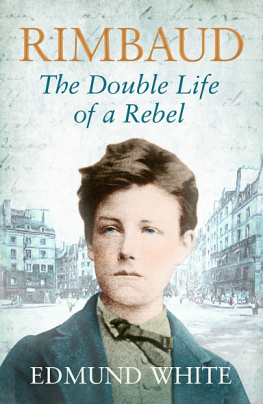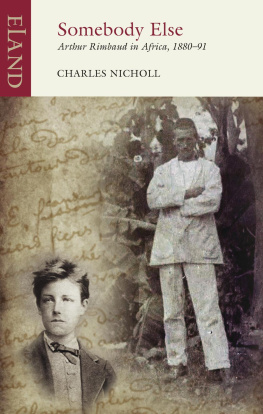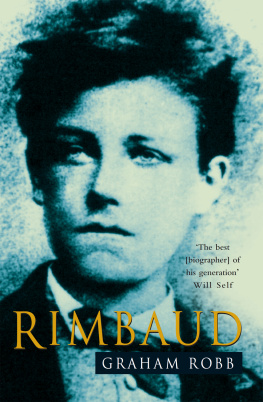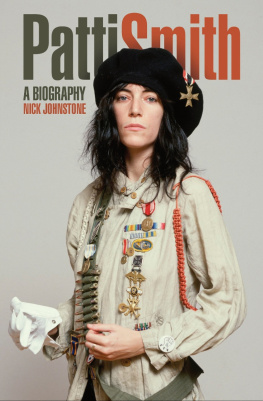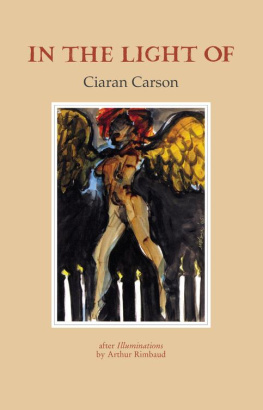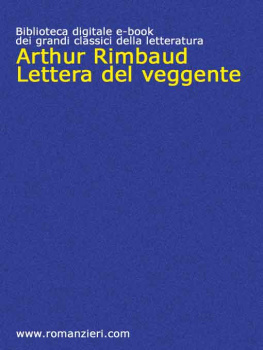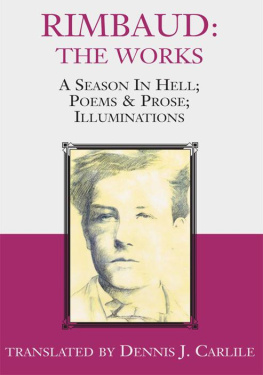Rimbaud
Edmund White is a novelist and literary and cultural critic. He is the author of biographies of Genet and in the Penguin Lives series of Proust, and of eight novels, most recently Hotel de Dream. He teaches at Princeton university and lives in New York City.
White carries off the task of uniting order and disorder more elegantly than his subject ever managed to in life He provides clear, sensitive translations of the poetry, and an illuminating attention to the details of its evolution The book's achievement is to write a Life which illuminates the work without reducing it to oblique self-revelation. Instead it gives the life the shape of art, a fittingly decadent agenda.' Ben Morgan, Times Literary Supplement
An excellent way into the life of one of literature's great enigmas.' Tim Martin, Independent on Sunday
White predictably excels.' Michael Arditti, Independent
[White's] biography of the poet gives weight to both the passionate, rebellious life and the remarkable and revolutionary verse.' London Review of Books
White is never less than fascinating in this edifying biography.' Gay Times
White's book is learned but friendly: he manages to penetrate and illuminate the subject's linguistic alchemy while casting a fond but unsentimental eye over the train-wreck of the man's life. [Rimbaud] is a skilfully condensed and pacey reiteration of a myth that falls somewhere between Icarus, Orpheus, and Elvis.' Peter Murphy, Sunday Business Post
Rimbaud
The Double Life of a Rebel
Edmund White

Atlantic Books
LONDON
First published in the United States of America in 2008 by Atlas
and Co.
First published in hardback in Great Britain in 2009 by Atlantic
Books, an imprint of Grove Atlantic Ltd.
First paperback edition published in Great Britain in 2009 by
Atlantic Books.
This electronic edition published in Great Britain in 2009 by
Atlantic Books
Copyright Edmund White, 2008
The moral right of Edmund White to be identified as the author
of this work has been asserted by him in accordance with the
Copyright, Designs and Patents Act of 1988.
All rights reserved. No part of this publication may be reproduced, stored in a retrieval system, or transmitted in any form or
by any means, electronic, mechanical, photocopying, recording,
or otherwise, without the prior permission of both the copyright
owner and the above publisher of this book.
Every effort has been made to trace or contact all copyright holders. The publishers will be pleased to make good any omissions
or rectify any mistakes brought to their attention at the earliest
opportunity.
A CIP catalogue record for this book is available from the British
Library.
ISBN: 978 1 84887 375 9
Interior design by Yoshiki Waterhouse
Typesetting by Sara E. Stemen
Printed in Great Britain
Atlantic Books
An imprint of Grove Atlantic Ltd
Ormond House
2627 Boswell Street
London
WC1N 3JZ
www.atlantic-books.co.uk
To Carol Rigolot
"The novel of living together as two men"
Verlaine
When I was sixteen, in 1956, I discovered Rimbaud. I was a boarding student at Cranbrook, a boys' school outside Detroit, and lights out was at ten. But I would creep out of my room and go to the toilets, where there was a dim overhead light, and sit on the seat for so long that my legs would go numb. Outside, the wind was driving the snow into high white silencing drifts; inside, the dormitory was eerily quiet. I would read and read again Rimbaud's poems. Even though I had won a local prize in French, Rimbaud's vocabulary and grammar were too difficult for me and I was always peeking from the left page of the French original to the right page of the 1952 English translation by Louise Varse. Buoyed up by the sensual delirium of the long poem "The Drunken Boat," I would float off into daydreams of exotic climes.
As an unhappy gay adolescent, stifled by boredom and sexual frustration and paralyzed by self-hatred, I longed to run away to New York and make my mark as a writer; I identified completely with Rimbaud's desires to be free, to be published, to be sexual, to go to Paris. All I lacked was his courage. And genius. I crammed all my homework into the afternoons, when most of the other boys were playing sports. That way I was free during the two-hour compulsory study hall in the evening to work on my novel. I wrote one novel, then a second. My mother, ever indulgent, asked her secretary to type them up from my neat, handwritten pages. My idea was that I would send them off to a New York publisher, have them accepted, make a fortuneand flee. I'd cast aside both my parental households (my parents were divorced), liberate myself from their money, quit my schooland move to New York! I imagined an older man would fall in love with me and do everything for me.
For some reason, I never sent off my manuscripts. Maybe I didn't know where to mail them; after all, I'd never met a published writer, nor did such a fabulous creature seem to inhabit our Midwestern world, any more than a unicorn might suddenly gallop past my dorm windows. Or maybe I was afraid that my book would be accepted, that it would be published, that I would have to live out all my fantasiesand the notion of answered prayers I found even more alarming than a continuation of my dependence and frustration. After all, in Rimbaud's nineteenth-century Catholic village, a homosexual might have been a sinner or a criminal, but in the Freudian 1950s in America, he was sick and in urgent need of treatment. A sinner might insist he wanted to be a Prodigal Son, a criminal might want to be irredeemable, but no one could fight for the right to be sick.
I found the Rimbaud myth to be at once puzzling and exciting. In a slim volume about Rimbaud by Wallace Fowlie, published by New Directions in 1946, just a decade previously, I read these fascinating words: "A relationship between two poets of the same sex, even if there is a physical basis, may provide an intensive intellectual comradeship and stimulation. Homosexuality, in its highest sense, is founded on intellectualism. It represents fundamentally an aesthetic conception of love, in which the beauty of a young man seeks the wisdom of an older man, and in which wisdom contemplates beauty." Fowlie then went on to trot out Plato and the ideas of the Symposium. Only recently did I discover that Fowlie was both a champion of modernism and a Catholic who remained celibate for forty-five yearsand went on to write a last book in the 1990s about Rimbaud and Jim Morrison, lead singer of The Doors!
These ideas about homosexuality "in its highest sense" were heady indeed, "even" if physicaland rhymed with the life of the great Russian dancer Vaslav Nijinsky, and his tragic affair with his impresario lover, Sergei Diaghilev, the founder of the Ballets Russes. My mother had given me a biography of Nijinsky just before I discovered Rimbaud, and there, too, I read,
Diaghilev's boundless admiration for Nijinsky the dancer was even overshadowed by his passionate love for Vaslav himself. They were inseparable. The moments, in a similar mutual relationship, of dissatisfaction and ennui that came to others, never came to them, as they were so intensely interested in the same work. To make Sergei Pavlovich happy was no sacrifice to Vaslav. And Diaghilev crushed any idea of resistance, which might have come up in the young man's mind, by the familiar tales of the Greeks, of Michelangelo and Leonardo, whose creative lives depended on the same intimacy as their own.
To read that the two men "were one in private life" thrilled me, just as I was half-convinced by Diaghilev's argument that heterosexuality was an animal necessity for breeding, "but that love between the same sex, even if the persons involved are quite ordinary, because of the very similarity of their natures and the absence of a presupposed difference, is creative and artistic." Oddly enough, this strange and questionable homage to homosexuality had been written by Nijinsky's wife Romola (not so odd, perhaps, since Romola, as I only recently learned, was a lesbian).
Next page
